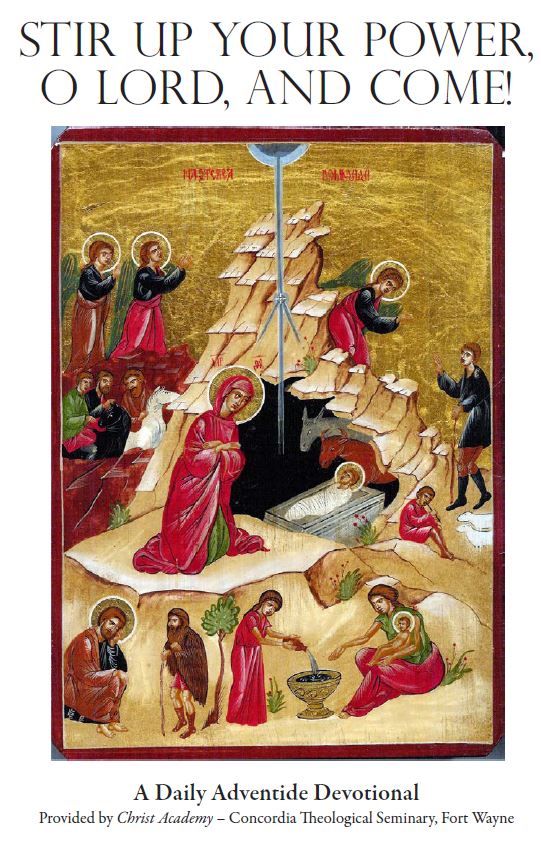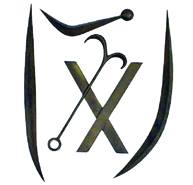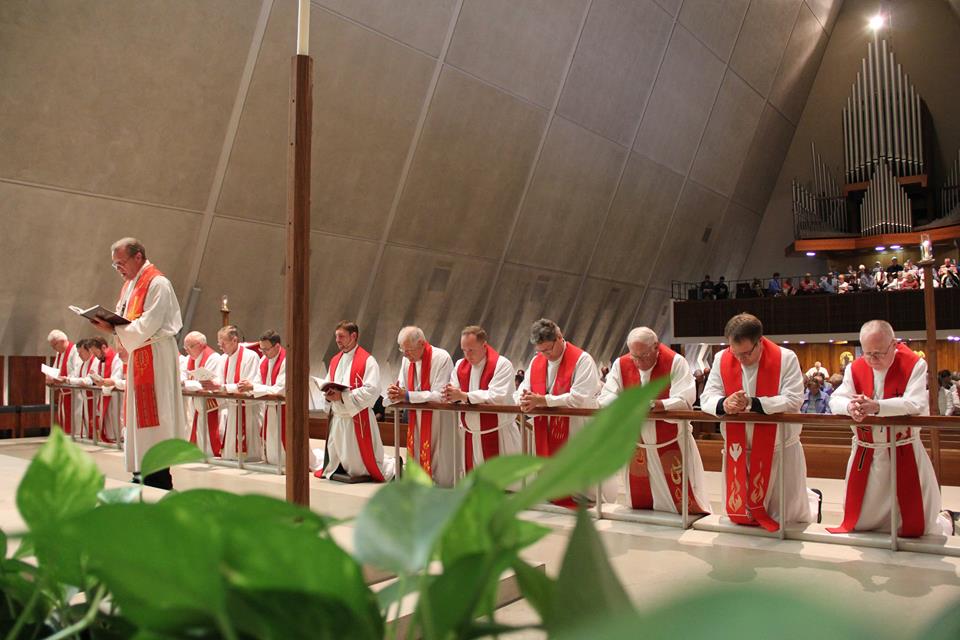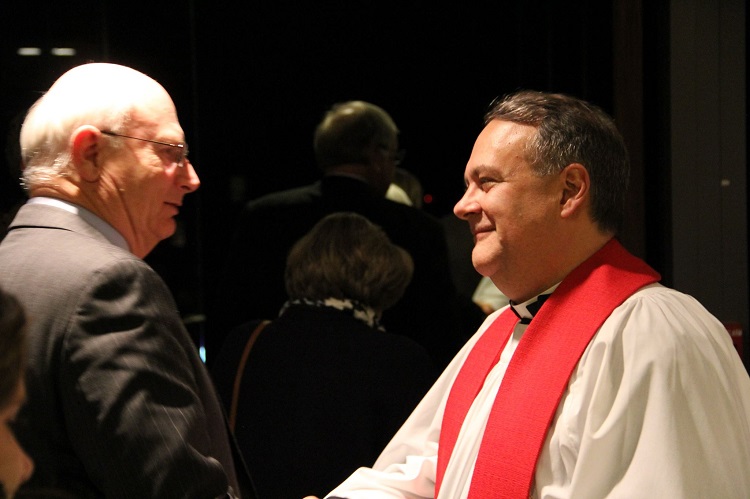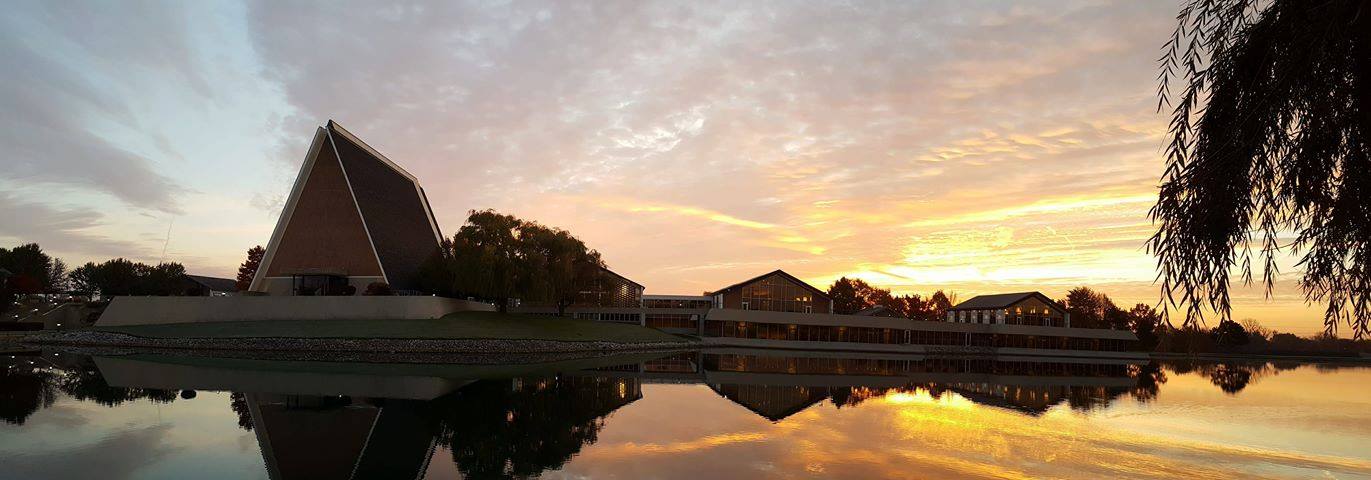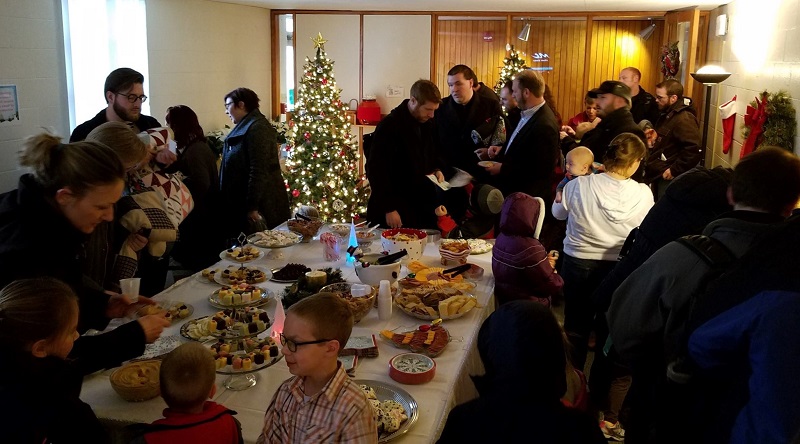
The Christmas Marketplace is an annual tradition at CTSFW, run by the Food and Clothing Co-op and made possible by the gifts from the many congregations and individuals who enjoy supporting our students, especially during the holidays. Because of your generosity, this year each student was given $330 in gift cards — nearly $40,000 in all.
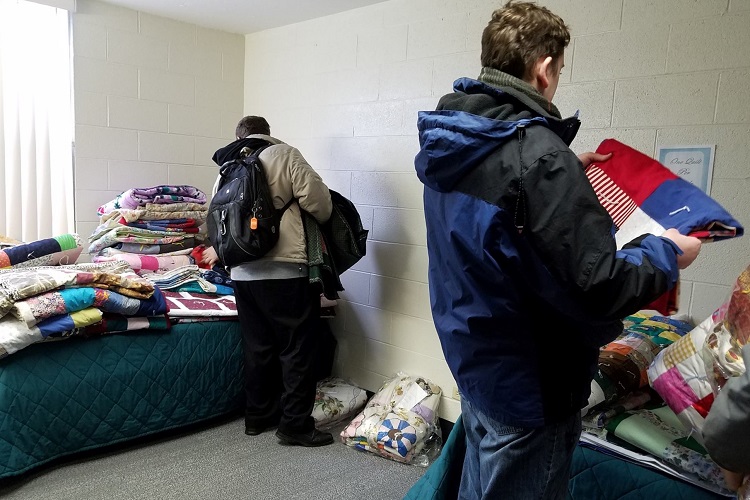
They each received a quilt as well. Though there wasn’t time to do a complete count, Katherine Rittner, director of the program, guessed that the Co-op had about 200 quilts for the students to choose from.These came to us from around the country, though the photo here doesn’t do justice to the incredible sight of all those stacks of beautifully sewn quilts.
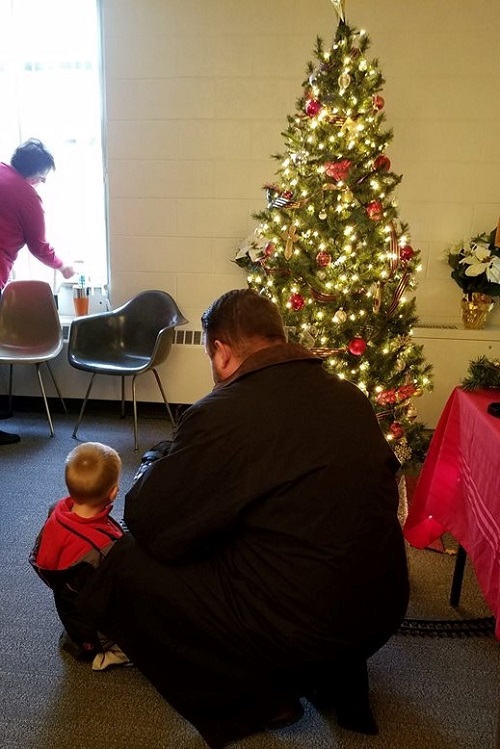 It was just as hard to capture the bustle and joy of the Marketplace with a few photographs. The ladies who run the Co-op provided a Christmas spread, prepared door prizes to be given out every fifteen minutes, and put together twenty big gift giveaways for the drawing at the end of the day. In the background of this picture, you can spot Katherine opening a window, trying to cool the packed space while a young man sits with his father, entranced by a toy train as it circles the Christmas tree.
It was just as hard to capture the bustle and joy of the Marketplace with a few photographs. The ladies who run the Co-op provided a Christmas spread, prepared door prizes to be given out every fifteen minutes, and put together twenty big gift giveaways for the drawing at the end of the day. In the background of this picture, you can spot Katherine opening a window, trying to cool the packed space while a young man sits with his father, entranced by a toy train as it circles the Christmas tree.
To learn more about the Food and Clothing Co-op, visit www.ctsfw.edu/Co-op.

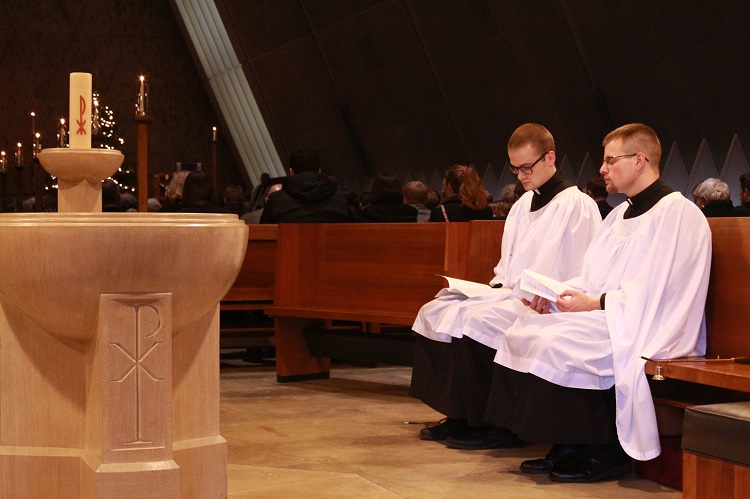 The people dwelling in darkness
The people dwelling in darkness